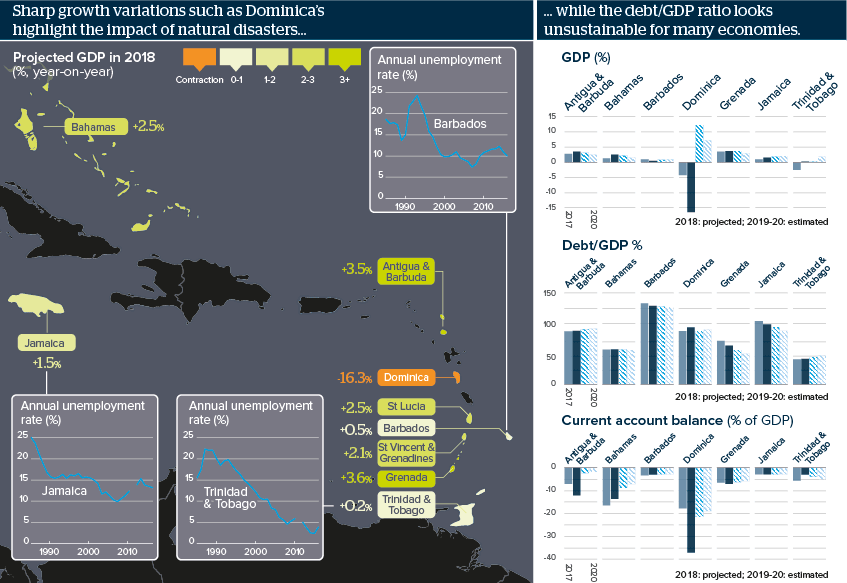English-speaking Caribbean faces economic uncertainty
The island economies are highly vulnerable to natural disasters and external events
Source: IMF World Economic Outlook
Outlook
Some of the English-speaking Caribbean economies, such as Jamaica, have seen a shift to firmer, if still sluggish, growth in recent years. However, this has yet to reach levels able to boost employment (especially among youth) or reduce high crime levels.
The sub-region is deeply affected by events beyond its control: hurricanes, the vagaries of international tourism trends and increasing international pressures on offshore tax havens.
Although remittances are a key source of income in many Caribbean states, the outflows of skilled workers to the United States and elsewhere also raise questions as to whether the benefits outweigh the negative impact on local economies.
Impacts
- Absent significant improvements in the economic outlook, weariness with fiscal austerity in some countries will raise political risks.
- High crime rates will hinder investment and tourism, with the latter trending towards cruise ship visits rather than overnight stays.
- Increasing scrutiny of money-laundering and corporate transparency will affect some island ‘offshore’ economies.
See also
- Economic outlook is improving in Barbados - Feb 28, 2020
- Hurricane highlights Bahamas socioeconomic pressures - Sep 25, 2019
- Bahamas' toll from Hurricane Dorian will mount further - Sep 5, 2019
- Hurricane Dorian will hit the wider Bahamas economy - Sep 2, 2019
- Foreign options widen as economy recovers in Jamaica - Jun 17, 2019
- Large Latin American economies weigh down 2018 growth - Aug 24, 2018
- Trinidad and Tobago economy improves despite concerns - Aug 17, 2018
- Caribbean reconstruction efforts will face obstacles - Nov 24, 2017
- More graphic analysis
